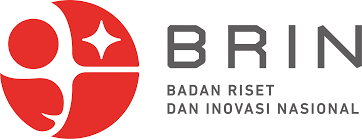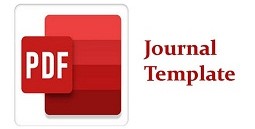Thoughts on Children's Education from the Perspective of Ibn Hajar Al-Haitami
DOI:
https://doi.org/10.58355/attaqwa.v3i2.65Keywords:
Concept, Child education, Ibn Hajar al-HaitamiAbstract
According to Ibn Hajar al-Haitami, the purpose of children's education involves efforts to care, develop, and exploit the potential of students so that they are able to understand kitabulloh, have noble morals, and have the skills to lead an independent life. In order to achieve these educational goals, Ibn Hajar al-Haitami wrote a book that specifically discusses various aspects, including educational objectives, educational flow, educator competencies, children's educational techniques, education costs, and characteristics of children's educational institutions. All these components are analyzed and described in his work entitled Tahrīru al-Maqōl Fī Adābi Wa Ahkāmi Wa Fawā'idu Yahtāju Ilaihā Muˋaddibū al-Aṭfāl. The study focused on six aspects of education discussed in the book, using. Descriptive Content Analysis Method, Types of Literature Research, and Descriptive Qualitative Approach. The main data are obtained from Tahrīru al-Maqōl Fī Adābi Wa Ahkāmi Wa Fawā'idu Yahtāju Ilaihā Muˋaddibū al-Aṭfāl, while the secondary data comes from various books discussing the biography of Ibn Hajar al-Haitami. The research process involves three stages: data collection, data processing, and data reporting. The results showed that the focus of children's educational goals emphasizes the development of material and non-material potential of learners. A religious-conservative approach is used in the flow of children's education, with the dominant educational technique being takzir. The competence of educators that is prioritized includes personal and social dimensions, while education financing can be obtained through salaries, endowments, and grants. Ibn Hajar al-Haitami recommended educational institutions in the form of maktab and madrasa.
Downloads
References
Abuddin Nata, Ilmu Pendidikan Islam, (Jakarta: Prenada Media Group, 2010).
Ahmad Tafsir, Ilmu Pendidikan dalam Prespektif Islam , (Bandung: Remaja Rosydakarya, 2011).
Atabik Ali, dkk, Kamus Kontemporer al-Asri, (Yogyakarta: Multi Karya Grafika, tt), Cet. IV.
Asriati, N. (2012). "Mengembangkan Karakter Peserta Didik Berbasis Kearifan Lokal Melalui Pembelajaran di Sekolah." Jurnal Pendidikan Sosiologi dan Humaniora 3.
Azyumardi Azra, Pendidikan Islam: Tradisi Dan Modernisasi Menuju Milenium Baru (Logos Wacana Ilmu, 1999) (Banten: Logos Wacana Ilmu, 1999)
Aziz Masyhuri, Masalah Keagamaan, (Surabaya: Dinamika Press Group, 1977).
Baidhawy, Z (2005). Pendidikan agama berwawasan multikultural. Erlangga.
Connie Chairunnisa, C., I. Istayatiningtias, et al. (2019). Pengembangan Model Pendidikan Karakter Di Sekolah Menengah Pertama. Mitra Wacana Media.
Fakhir Amil, Maˋālimu at-Tarbiyati Dirōsatun Fī at-Tarbiyati al-ˋĀmmati Wa at-Tarbiyyati al-Arobiyyati, (Beirut: Darul Ilmi, 1983), Cet. V..
Fittryati, S. A. (2020). Perancangan sekolah pendidikan anak usia dini (paud) di Sidoarjo dengan pendekatan arsitektur ramah anak menurut permendikbud no. 137 tahun 2014, Universitas Islam Negeri Maulana Malik Ibrahim.
Ibnu Hajar al-Haitami, Tahrīru al-Maqōl Fī Adābi Wa Ahkāmi Wa Fawā’idu Yahtāju Ilaihā Muˋaddibū al-Aṭfāl,hlm. 66.
Ibnu Hajar al-Haitami, Tahrīru al-Maqōl Fī Adābi Wa Ahkāmi Wa Fawā’idu Yahtāju Ilaihā Muˋaddibū al-Aṭfāl.
Ibnu Madzur, Lisānu al-Arōbi, (Beirut: Darul Fiker, 1990 ), Cet. I, Vol. XX,
Lexy J. Moeleong, Metodologi Penelitian Kuantitatif, (Bandung Remaja: Rosdakarya, 2004), Cet. XVIII.
Mif. Baihaqi, Psikologi Pertumbuhan, (Bandung: PT Remaja Rosdakarya, 2008).
Mudjio Santoso, Hakekat, Peranan, dan Jenis-jenis Penelitian Pada Pembangunan Lima Tahun VI, Penelitian Kuantitatif Dalam Ilmu-Ilmu sosial dan Keagamaan, (Malang: Kalimasahada, 1996).
Muhammad Suheil ad-Dabs, Terjemah Ibnu Hajar al-Haitami dalam Tahrīru al-Maqōl Fī Adābi Wa Ahkāmi Wa Fawā’idu Yahtāju Ilaihā Muˋaddibū al-Aṭfāl, (Beirut: Ibnu Katsir, 1987), Cet. II, 13.
Muzaki, A. (2020). Implementasi Manajemen Pendidikan Berbasis Sekolah Di Lembaga Pendidikan Formal NU (Studi Kasus di SMK Ma’arif 2 Sleman).
Muhammad Suheil ad-Dabs, Terjemah Ibnu Hajar al-Haitami dalam Tahrīru al-Maqōl Fī Adābi Wa Ahkāmi Wa Fawā’idu Yahtāju Ilaihā Muˋaddibū al-Aṭfāl.
Nur Uhbiyati, IlmuPendidikan Islam, (Bandung : Pustaka Setia, 1997) h. 85
Novi Handayani, N. (2017). Pengaluran dan Penokohan Dalam Novel Umibe No Kafuka Karya Haruki Murakami (Kajian Struktural).
Sulfemi, W. B. (2019). Kompetensi Profesionalisme Guru Indonesia dalam Menghadapi MEA.
Siti Rahayu, dkk, Psikologi Perkembangan, (Yogyakarta: Gadjah Mada University Press, 2004).
Syaiful Bahri Djamarah, Guru dan Anak dalam Interaksi Edukatif, (Jakarta: Reneka Cipta, 2000).
Siham Mahdi Jabbar, aṭ-ṭiflu FĪ Syariˋatu al-Islāmiyyati Wa Manhaju at-Tarbiyatu an-Nabawiyyatu, (Beirut: Maktabah al-Asriyah, 1997).
Soetantyo, S. P. (2013). Peranan dongeng dalam pembentukan karakter siswa sekolah dasar. Jurnal Pendidikan 14.
Syu’ban Atiyah, dkk, al-Mu’jamu al-WāsĪṭ, (Mesir: Majma’ah Lughoh al-Arobiyah, 1972).
Zuchri Abdussamad, “Metode Penelitian Kualitatif” (Makassar: Syakir Media Press, 2021), 47.
Downloads
Published
How to Cite
Issue
Section
License
Copyright (c) 2024 Rahmat Fajar Al-Qusyairi JNZ

This work is licensed under a Creative Commons Attribution 4.0 International License.















